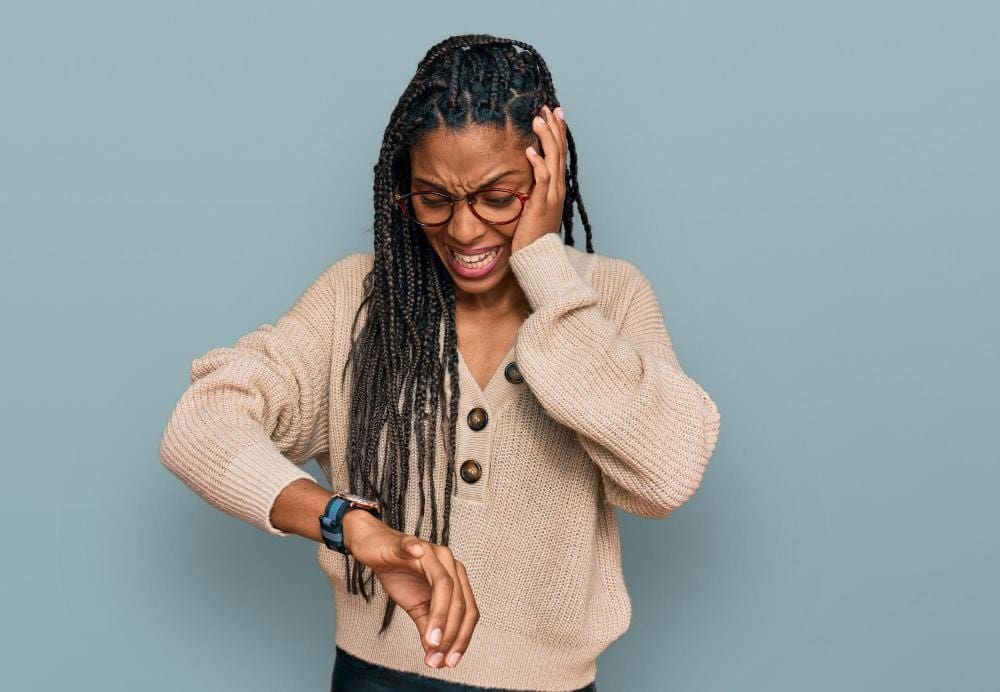“I’ve lost myself”, “I don’t know who I am anymore”, “I don’t know who I am without __”, and “I feel like I’m losing myself” are phases we have all said at some point in our lives. Chances are, we’ve all had moments where we stared up at the sky wondering “what it all means”- and if you’re like a good chunk of people, you’ve been conditioned to take other people’s wishes for your life and put them before your own. Whether it’s pressure to be a top performer, provider, significant other, or model employee, it seems that we always have someone or something we feel we should be measuring up to. Oftentimes, we spend so much time on this hamster wheel of dedicating our life to other people and being who we thought we were supposed to be, that it sometimes isn’t until later in life when we are able to firmly define who we are.
So rest assured- it’s completely natural to say things like “I feel lost” when you are living in a world that can seem like it is demanding so much of you. Studies show that 75% of women feel pressure to be perfect– coinciding with 62% of the male respondents of the study. It’s no wonder why so many people have seasons where they feel lost. Even the boldest and most free of us have had pivotal moments where we had to step outside our comfort zone to decide to regain control of our lives and create our own identity. Remember, the choices you make today will shape your future self, guiding you towards a more fulfilling and positive life.

So in this blog, you’re going to learn how to unleash ‘the WHOA factor’. You know, the person that walks past you that makes you go “whoaaaaaaaa” in amazement as you watch them walk past (in slow motion, of course). They’re the 70-year-old’s running marathons, the spicy older couple latin-dancing on the sidewalk, the 30-something year old in prestige suits and expensive jewelry- that you feel like you aren’t allowed to look at- owns a luxury vehicle you don’t even know how to pronounce, and strongly emanates the words “I have a multi-million dollar empire”.
It’s the woman in her early sixties, with short lavender hair, tattoos, that just seems to radiate “ I AM ME” as she rollerblades past you. Or, it’s the now middle-aged woman whose children have all left the house- as well as her husband- that is now so clear on her worth, values and boundaries, that she seems like a completely different woman.
In this blog, we’re going to walk through what to do when you start having “I’ve lost myself” type of feelings and what you can do to reduce the number of times you feel that way.
1. Understanding the Feeling of Being Lost
Feeling lost is a common experience that can be overwhelming and scary. It’s a feeling of disconnection from one’s thoughts, emotions, and surroundings. When we feel lost, we may question our identity, purpose, and direction in life. It’s essential to acknowledge and accept these feelings, rather than trying to suppress or deny them. By understanding the feeling of being lost, we can begin to take the first steps towards self-discovery and finding our true selves.
Answer this question: “Who is my true self?”

Seems simple enough, but you can only answer this question without using titles. Still easy? Probably not. Many of us pride ourselves on our titles and accomplishments. But for one moment, strip yourself of those titles and think “who am I”? What kind of person are you? What do you value? What makes you happy? Where are you from? What makes you, you?
When we feel lost, we may experience an identity crisis, questioning our identity, purpose, and direction in life.
This is a critical question to ask yourself because it will reveal the narrative you have of yourself and how you truly feel about yourself and where you are in your life. It will also reveal what things give you your sense of identity. What better way to combat “I’ve lost myself” than by answering “Who am I” in order to determine where you’ve lost alignment?
3. Identifying the Root Cause
Identifying the root cause of feeling lost is crucial to making meaningful changes. It’s essential to explore the underlying reasons for our feelings of disconnection and confusion. Are we struggling with negative self-talk, lack of purpose, or external pressures? Are we trying to live up to others’ expectations rather than our own desires? By understanding the root cause of our feelings, we can begin to address the underlying issues and start the process of self-discovery.
What expectations do I have that are self-imposed and which are imposed by others?
A good chunk of the time, we feel lost when we are doing things that we feel are out of alignment with what we truly want. We also feel lost when we want to make other people feel proud, happy, and loved, even though it’s costing us our own. So how do you choose who gets to come first- you or them? First, take a moment to write down the goals that you have for your life. Once you’ve done that, then write down where each goal stemmed from. Was it you? Your parents? Society? Someone you wanted to prove wrong? Someone you wanted to prove right?
Next, write why each goal is important. What would be the result of you accomplishing that goal? The real result, not the obvious one. Hitting a financial marker obviously means you’ve increased your income, but does it also mean that you’re fulfilling your promise to yourself that you will never have to sleep in your car again like when you were homeless? Does hitting your financial marker mean that your parents will never have to pinch pennies to survive again? What’s driving each of these goals?
You’d be surprised, but most people start having feelings of being lost because they don’t know why they’re doing what they are doing anymore. They’ve slowly shifted to a primarily auto-pilot lifestyle, and thus have feelings of lost identity. Consciously declaring who you are and distinguishing your words, thoughts, feelings, and dreams, from others are important steps to take when regaining your sense of identity.
5. Breaking Free from Limiting Patterns
Breaking free from limiting patterns is a critical step in finding ourselves. When we’re stuck in negative thought patterns, self-doubt, and fear, it’s challenging to move forward. It’s essential to recognize these patterns and challenge them with self-compassion and self-awareness. By breaking free from limiting patterns, we can start to develop a more positive and empowering mindset, which will help us navigate the journey of self-discovery.
Boundaries, boundaries, boundaries
Okay, you’ve determined who you are, you’ve distinguished your words, thoughts, feelings, and dreams from others, now it’s time to put some boundaries in place to protect yourself. One of the main reasons people get to the place where they are saying “I’ve lost myself” is because they don’t have strong boundaries. Think of boundaries as where I end, and you begin. It’s a property line in a sense. When you drive through a neighborhood that has fences, it is clear where their property starts and ends- this is how clear your boundaries need to be. So, let’s think, what things make you feel the opposite of what you want to feel? Are we struggling with negative self-talk, low self-esteem, lack of purpose, or external pressures? What can be done to mitigate those events? The goal here is to pinpoint what’s not working for you right now and how we can change that narrative and create boundaries that help you get your desired outcome.

You deserve to have your “this is me” moment and to be accepted for it. You may have made some decisions you wish you hadn’t made, you may be more “sensitive” than people would like, or too young, too old, too big, too small, too this, too that, not enough this, and not enough that, but that’s okay. What you’re going to do now, is start doing more of the things that make you feel great about yourself and where your life is going. You may be faced with some resistance from people that would prefer that you stay the version of yourself that benefits them the most, but you are entitled to being able to think of yourself first before others. Now of course that doesn’t mean go around town blowing everyone off, but it does mean that you do not have to become a vessel for self-sacrifice.
My last words to you are that it is normal to feel lost every now and then. We all get so caught up in the humdrum of life that we sometimes lose sight of what’s important to us.
Schedule a session with me if you feel coaching would be a benefit to you.
With love,
Allison
7. Creating a Personal Growth Plan
Creating a personal growth plan is essential for moving forward and finding ourselves. It’s a roadmap that helps us identify our goals, values, and priorities. By setting clear objectives and creating a plan, we can start to take action towards our goals and make progress towards self-discovery. A personal growth plan should include self-reflection, self-care, and self-compassion, as well as strategies for overcoming obstacles and staying motivated.
8. Seeking Support and Guidance
Seeking support and guidance is a vital part of the self-discovery journey. It’s essential to surround ourselves with people who support and encourage us, rather than those who drain our energy and confidence. A life coach, therapist, or trusted friend can provide valuable guidance and support as we navigate the journey of self-discovery. By seeking support and guidance, we can gain new insights, develop self-awareness, and stay motivated on our journey towards finding our true selves.




Comments are closed.